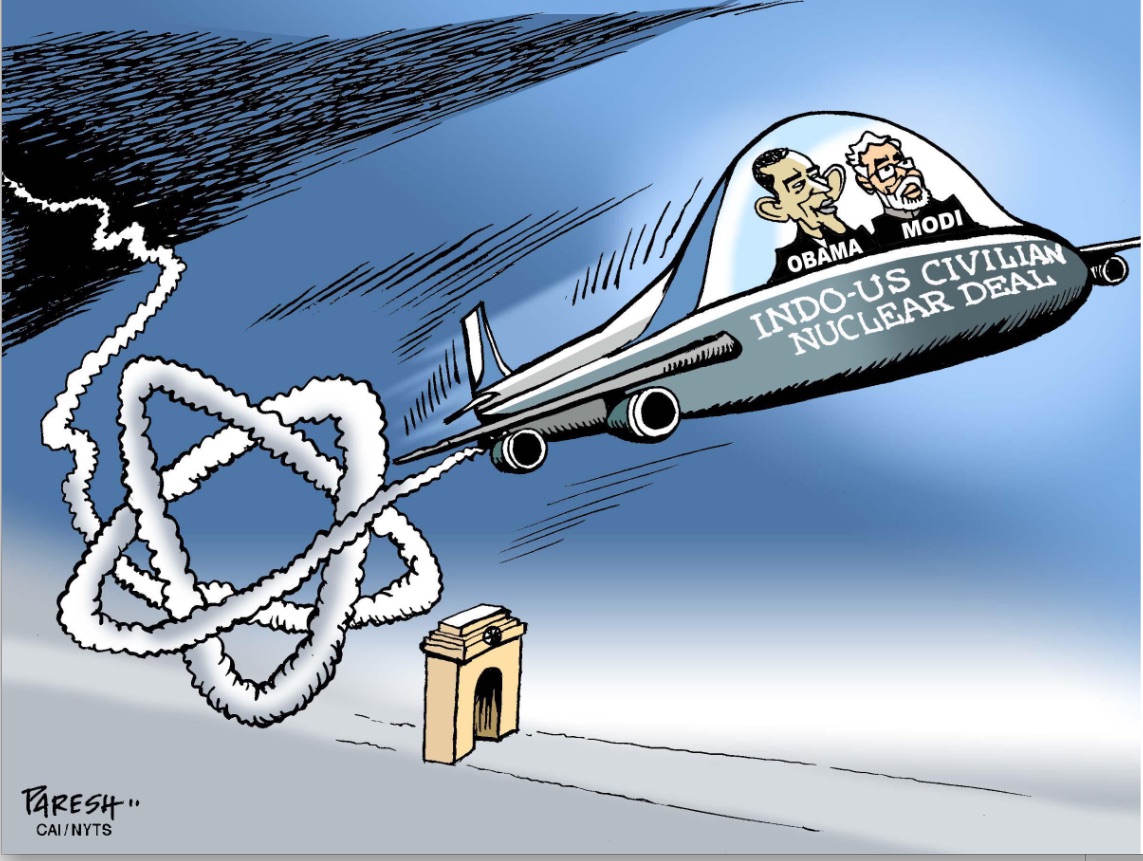During U.S. President Barack Obama's recent India visit, a stalled, decade-old civil nuclear deal took center-stage, with the two sides announcing a breakthrough on the contentious issues blocking its implementation — a development that promised to potentially open the path for a Japan-India nuclear deal. It now appears that the breakthrough was more hype than reality and that there is little prospect of the U.S.-India deal's early commercialization.
With Indian Prime Minister Narendra Modi by his side, Obama announced that "we achieved a breakthrough understanding on two issues that were holding up our ability to advance our civil nuclear cooperation." The two issues identified were nuclear accident liability and the administrative arrangements to govern the bilateral nuclear cooperation agreement — the successor to an accord the United States unilaterally terminated after India detonated a nuclear device in 1974.
U.S. officials said India agreed to address American concerns over its liability legislation by setting up a $245 million nuclear insurance pool and issuing a "memorandum of law" — essentially an executive action. The Indian foreign ministry, for its part, said "the deal is done," with the two sides having "reached an understanding on civil nuclear liability and finalized the text of the administrative arrangements."



